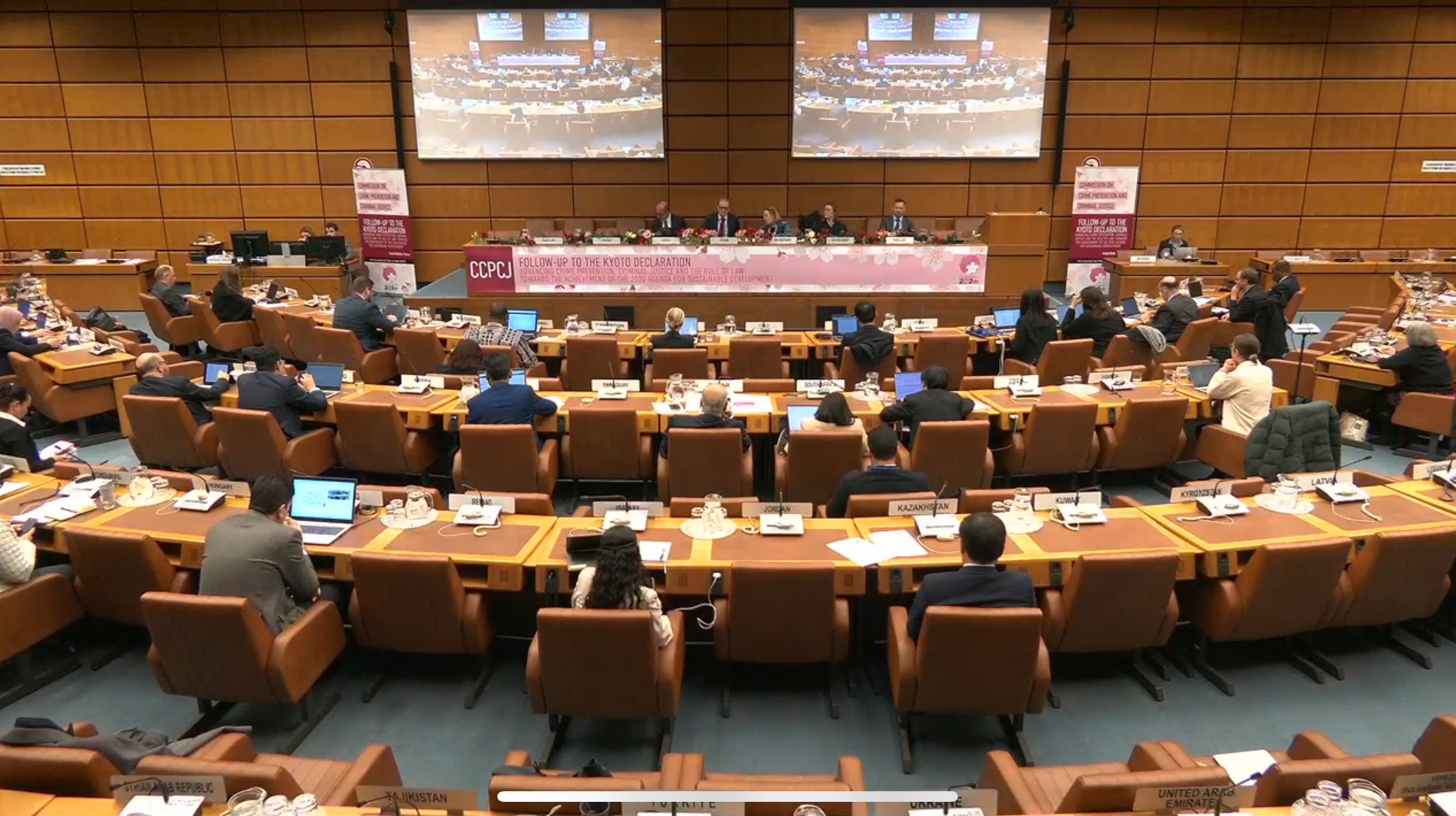Three ways to improve international cooperation in asset recovery

Grand corruption and asset recovery cases are generally transnational and require both informal and formal international cooperation at every stage. Yet despite laudable efforts to smoothen international cooperation, there are still many obstacles to overcome.
Jonathan Spicer of our International Centre for Asset Recovery spoke at the 2024 Thematic Discussions on the implementation of the Kyoto Declaration of the Commission on Crime Prevention and Criminal Justice (CCPCJ), which took place at the UNODC headquarters in Vienna, Austria, from 2–4 December 2024. His short intervention (below) sets out three tangible actions that would improve the processes of international cooperation in cross-border asset recovery cases.
By taking these steps, we would hope to see a significant increase in the amount of illicit financial flows detected, intercepted, confiscated and returned.
Excellencies, Distinguished panellists and experts, thank you for inviting me to speak at this Thematic Discussion.
Part of the work of the Basel Institute on Governance, through our International Centre for Asset Recovery, is to provide our partner countries with technical assistance as regards international cooperation both through formal and informal routes.
From this we have experienced some of the best and some of the worst examples of attempts at international cooperation.
1. Improve the quality of mutual legal assistance requests
Paragraph 61 of the Kyoto Declaration calls for increasing the efficiency and effectiveness of central authorities.
One way of increasing the effectiveness of central authorities could be to ask them to act as gatekeepers for outgoing requests and as a form of quality control. What do I mean by this?
From my experience, quite often requests are written by investigators or prosecutors with little or no experience of international cooperation. The requests then pass through central authorities without anybody reviewing for quality. By quality, I mean that the request is reviewed to ensure that it is easily understood both in terms of the facts underlying the request and what is actually being asked for.
Many requests simply contain cut and paste passages from legal documents such as long form indictments, which are far too detailed. By the time the request has been translated, they become incomprehensible to the receiving country.
Central authorities could play a pivotal role in reviewing outgoing requests and in educating and advising domestic prosecutors and investigators on best practice in preparing requests. But quite often we do not see this. The point here is simple: well-written requests get answered, bad ones do not.
In addition, countries sending requests should look to their own legislation in terms of making it easier to receive evidence from another state, for example through secure email or cloud-based file systems rather than through diplomatic channels for example.
2. Reconsider dual criminality
Even a well-written mutual legal assistance request can sometimes meet with a refusal. Often this is on the grounds of dual criminality: that the requesting country does not have the same offence which is being prosecuted or that it does not recognise the procedure which is being adopted. A common example is forms of non-conviction based forfeiture.
Dual criminality is a basic tenet of international cooperation, but perhaps it is time to re-open the discussion as to when and how it should apply.
Many countries no longer take a literalist approach to the label given to a crime and instead look at the underlying criminal behaviour. However, there are still offences which fall foul of dual criminality. For example, Article 20 of the United Nations Convention against Corruption introduced the offence of illicit enrichment, which is an effective tool in tackling corruption where the facts of the illicitly obtained wealth cannot be easily established. Quite often, requests for banking information, details on companies etc. will be refused as the country receiving the request has not adopted illicit enrichment legislation.
What are the real objections to providing this sort of information, given that this is an offence which appears in UNCAC?
3. Innovation in asset recovery: corporate structures and trusts
The last point that I would like to make relates to asset recovery. As we have seen from investigations such as the Panama Papers and others, criminals hide their wealth in corporate structures, often with nominee shareholders and directors or behind trusts.
Often asset recovery focuses on the jurisdiction where the asset is held to secure the asset, but more needs to be made of the legal obligations that arise from trusts and companies as a means of realising assets.
In a recent case (also discussed here), Jersey gave effect to an Indonesian confiscation order where assets were held in a trust based in Jersey. The Jersey trust held shares in a British Virgin Islands (BVI) company which owned property in Singapore. By obtaining a freezing order in Jersey over the trust assets, the Jersey authorities stood in the position of the trustee and were able to effect the sale of the assets of the BVI company, being the Singapore property.
More needs to be made of using these structures against the criminals. It can be particularly helpful where assets are held in countries which do not provide assistance.
Learn more
- See all presentations and statements from the CCPCJ event and the full session recording.
- We were invited to take part in the discussions in our capacity as a member of the Institutes of the UN Crime Prevention and Criminal Justice Programme Network (PNI).



